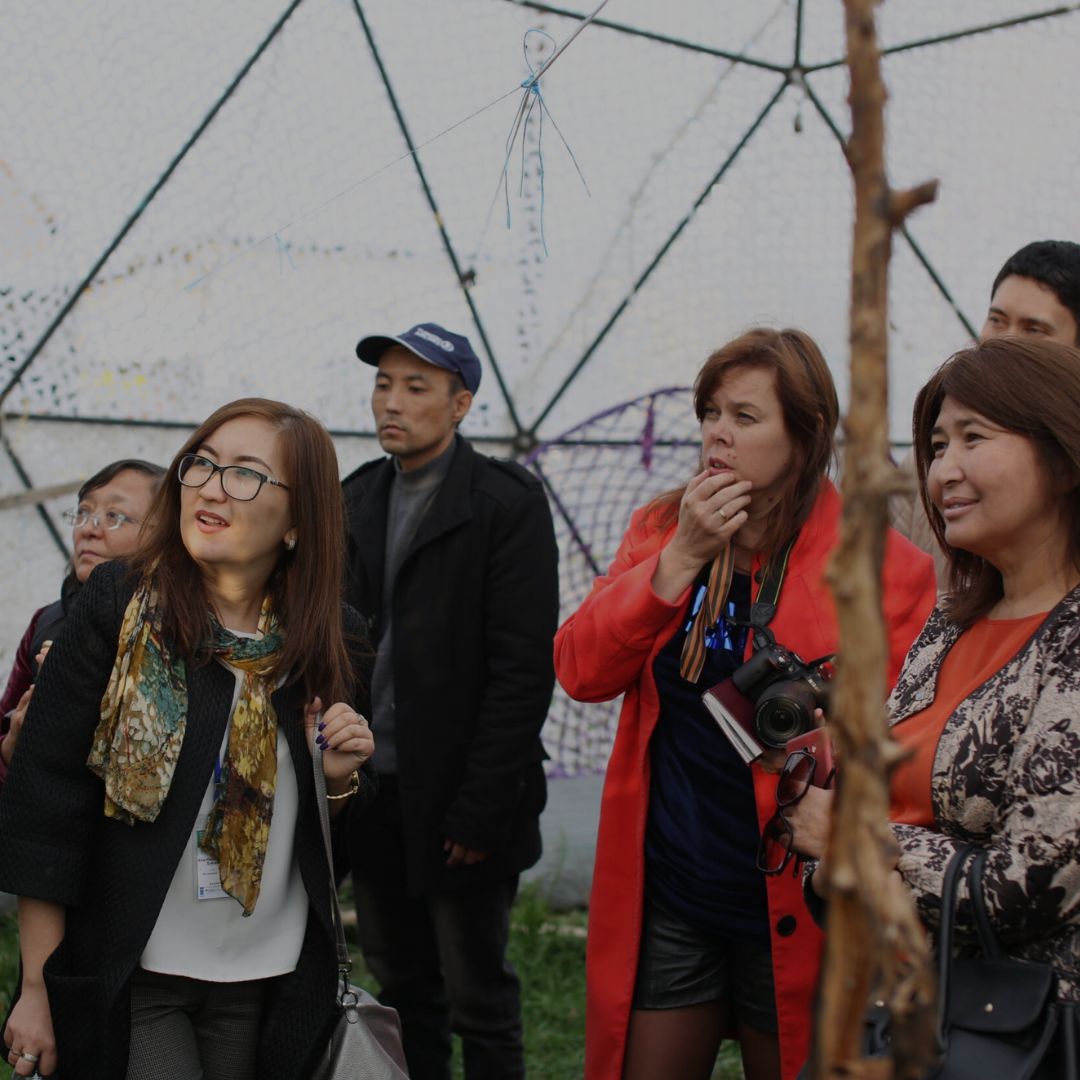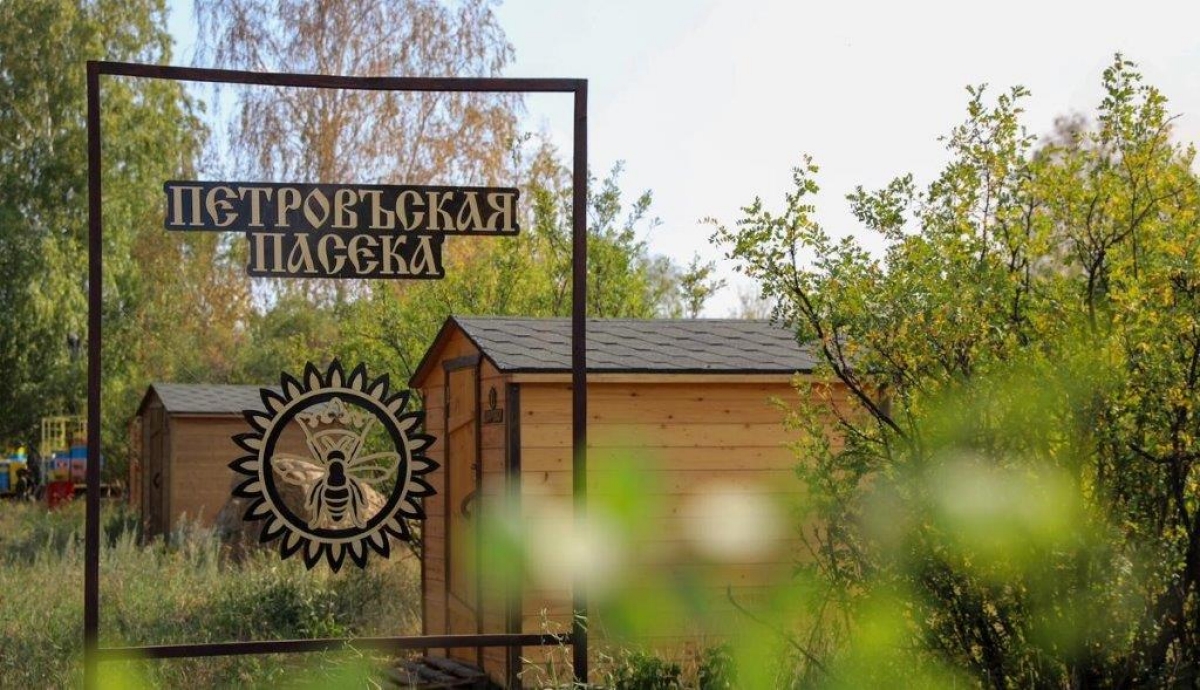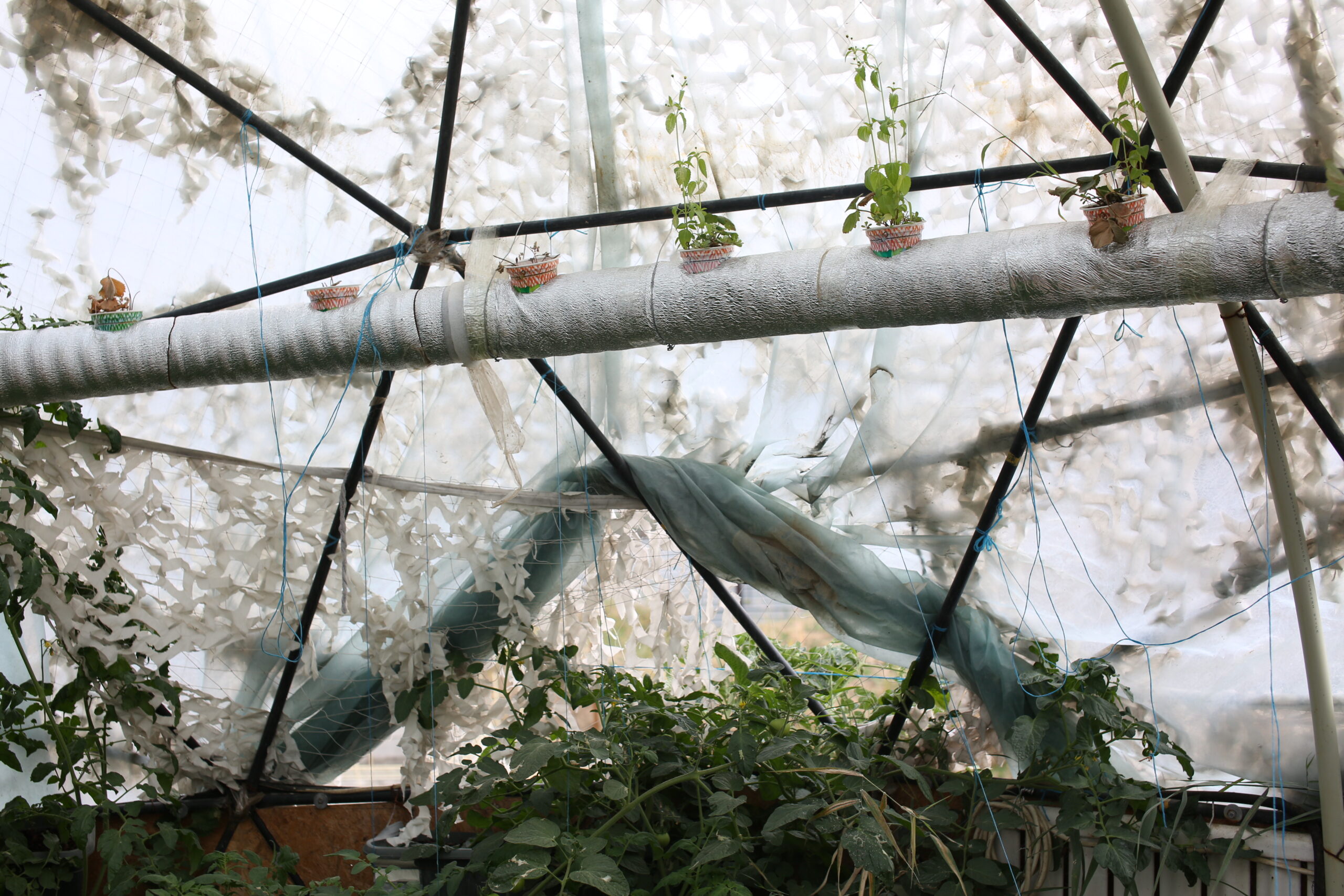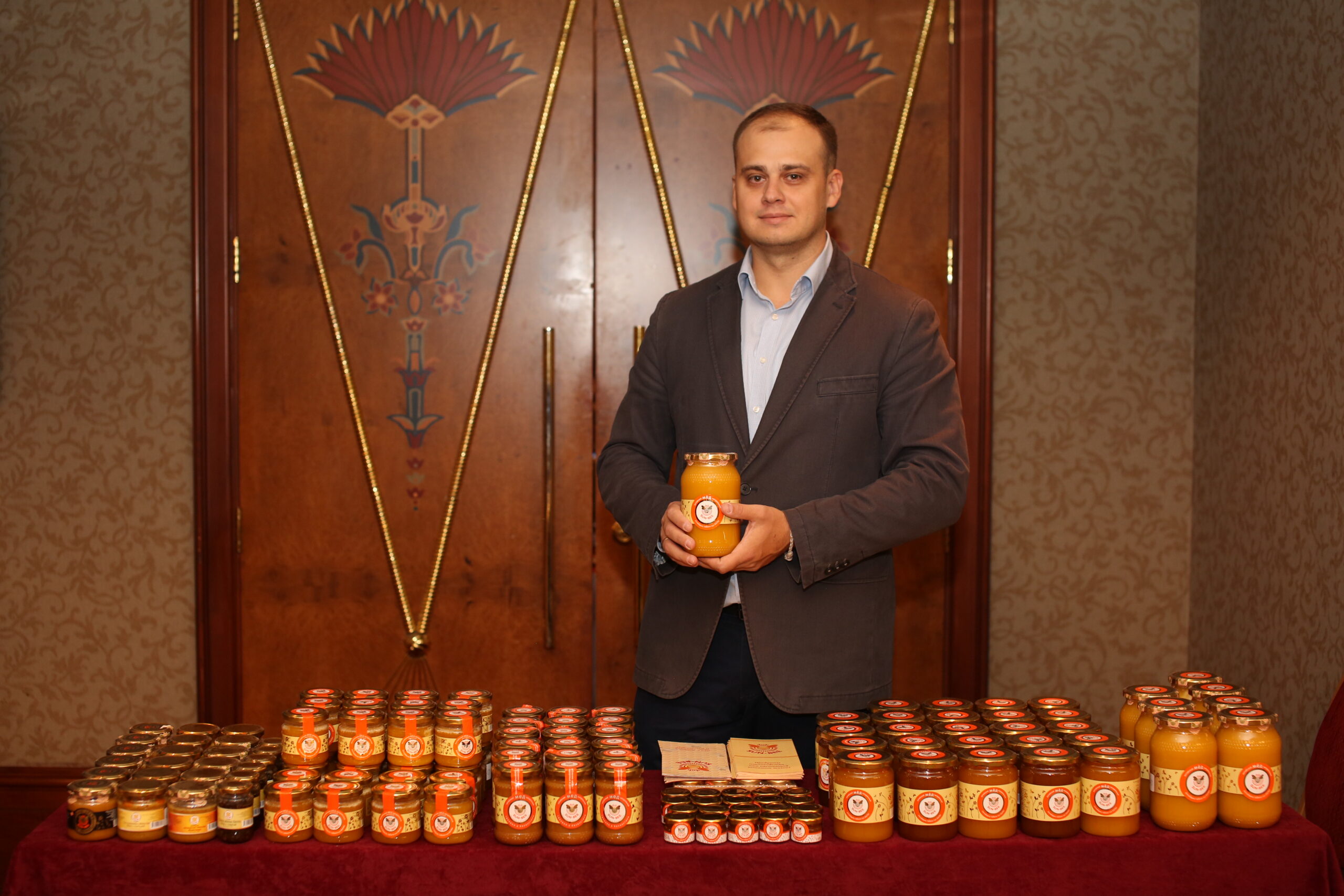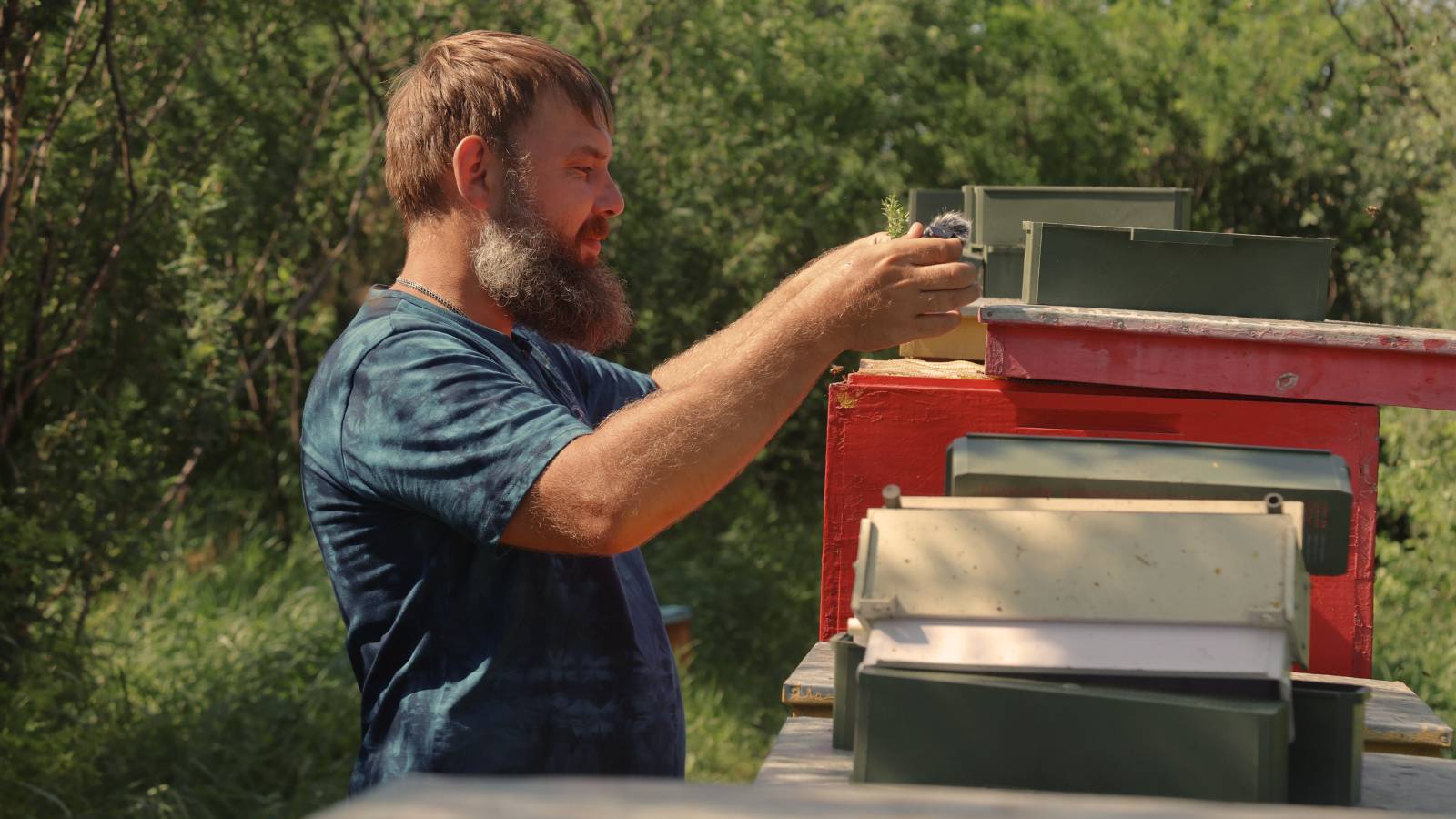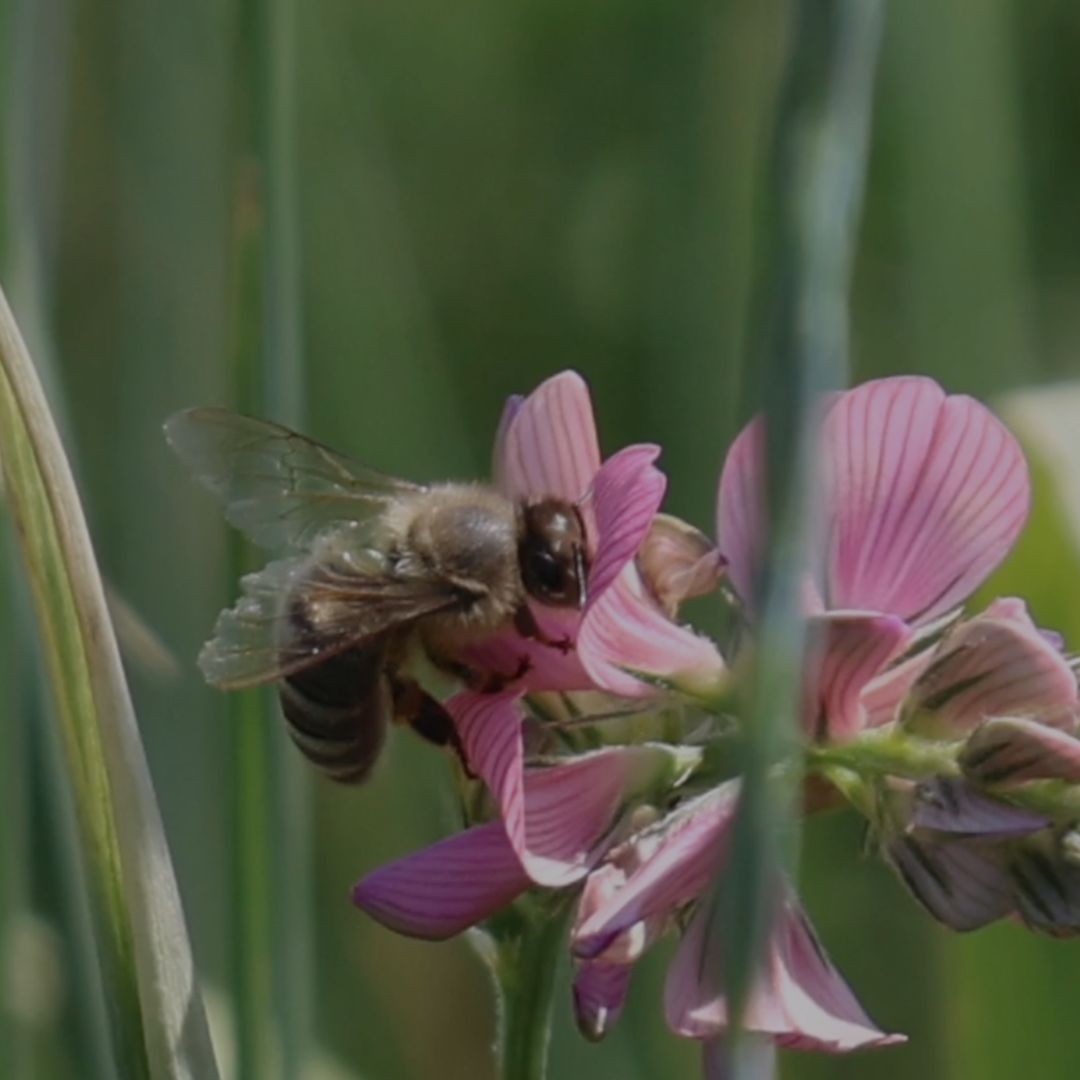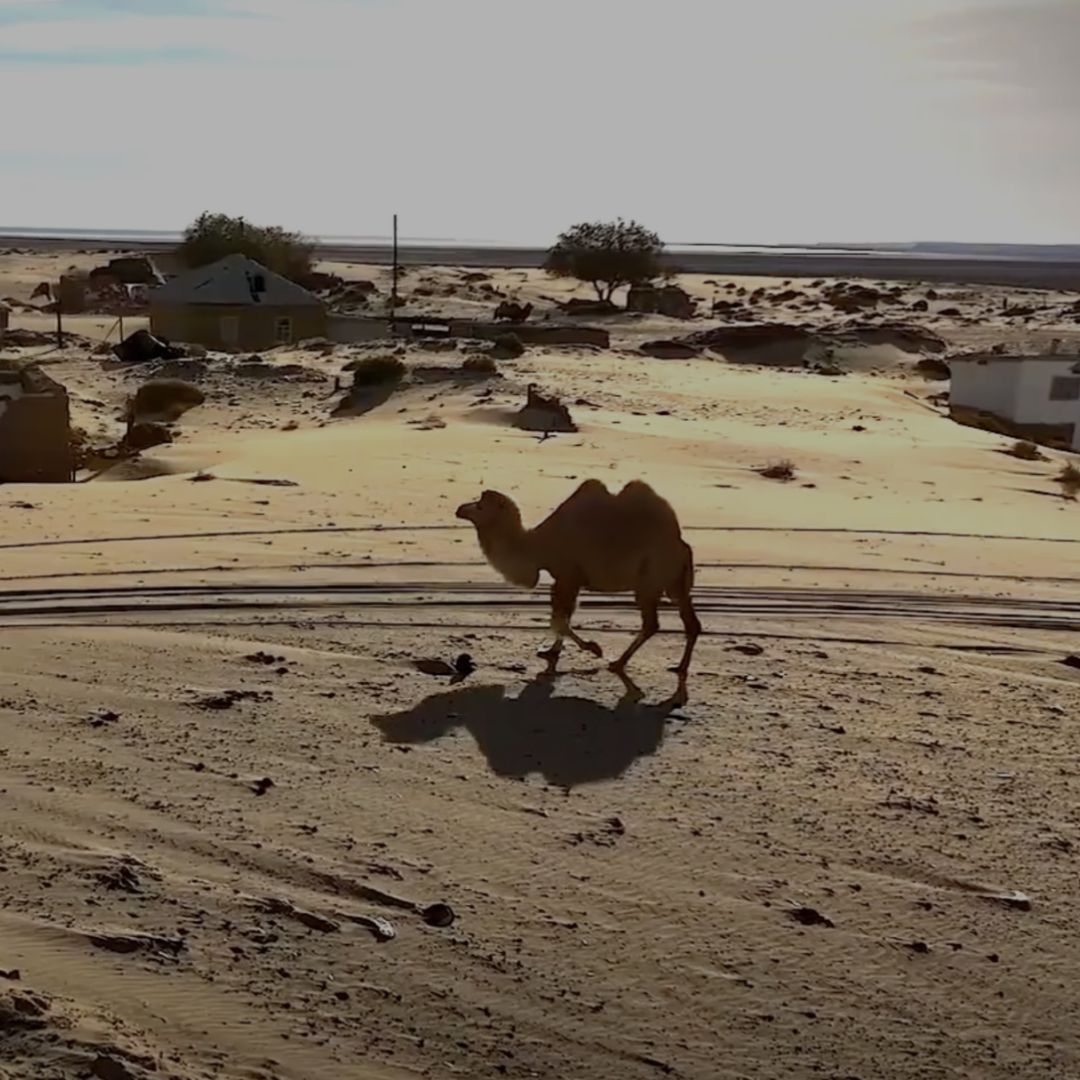Sustainable Solutions for Kazakhstan’s Ecosystems
A Look at the Impact of the BES Solution Fund
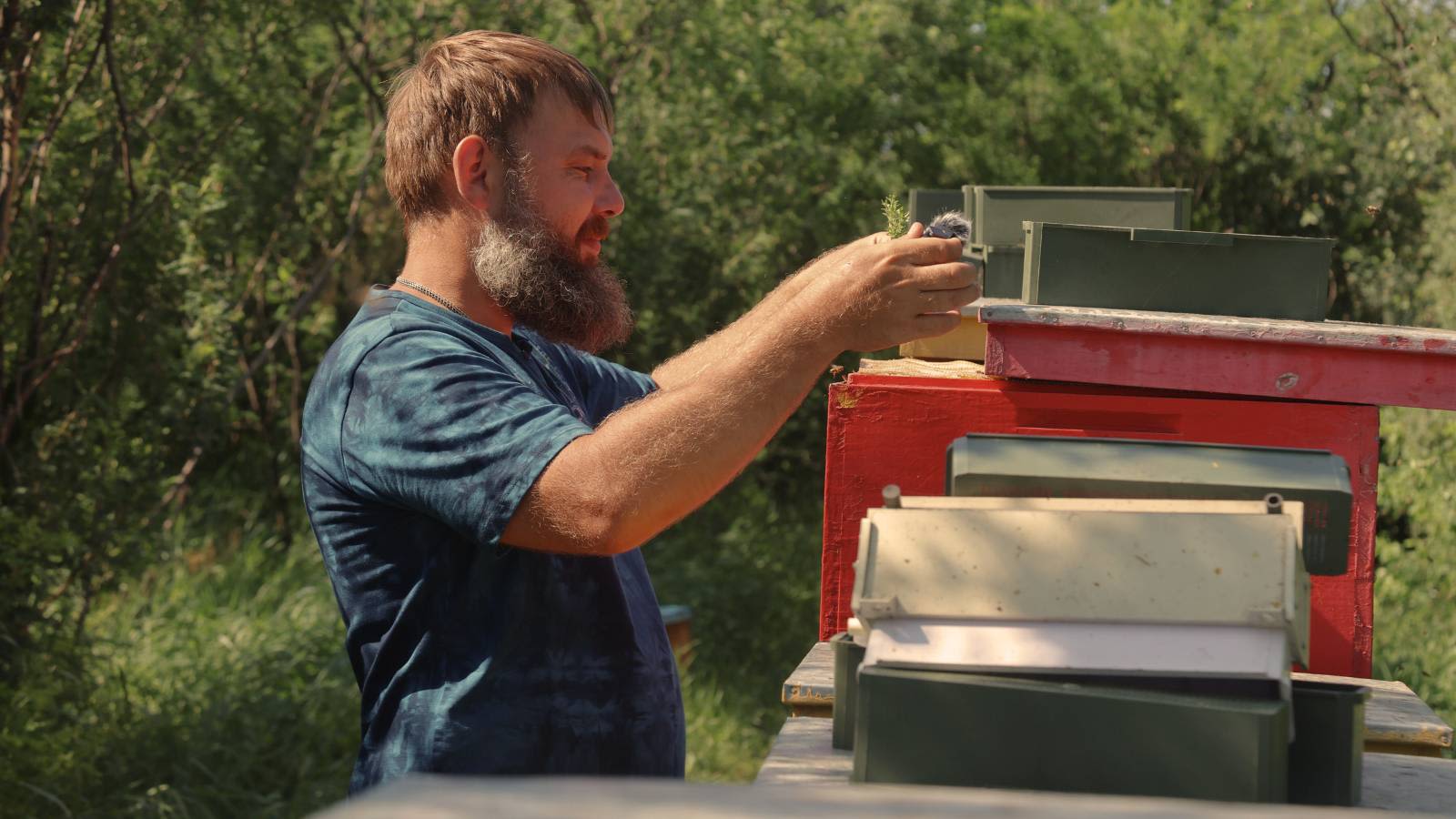
Kazakhstan, the largest landlocked country in the world, has been battling for decades land degradation and desertification, which threaten to tip the fragile balance of its ecosystems.
Recent support from the Biodiversity and Ecosystem Services Network (BES-Net) through the BES Solution Fund has been providing Kazakhstan with a unique opportunity to develop practical solutions by tapping into the potential of pollinator populations as the vital driving force of land rehabilitation. Making use of key insights from the thematic Intergovernmental Science-Policy Platform on Biodiversity and Ecosystem Services (IPBES) assessments, Kazakhstan has been implementing initiatives to create more sustainable and resilient ecosystems.
Kazakhstan, the largest landlocked country in the world, has been battling for decades land degradation and desertification, which threaten to tip the fragile balance of its ecosystems.
Recent support from the Biodiversity and Ecosystem Services Network (BES-Net) through the BES Solution Fund has been providing Kazakhstan with a unique opportunity to develop practical solutions by tapping into the potential of pollinator populations as the vital driving force of land rehabilitation. Making use of key insights from the thematic Intergovernmental Science-Policy Platform on Biodiversity and Ecosystem Services (IPBES) assessments, Kazakhstan has been implementing initiatives to create more sustainable and resilient ecosystems.
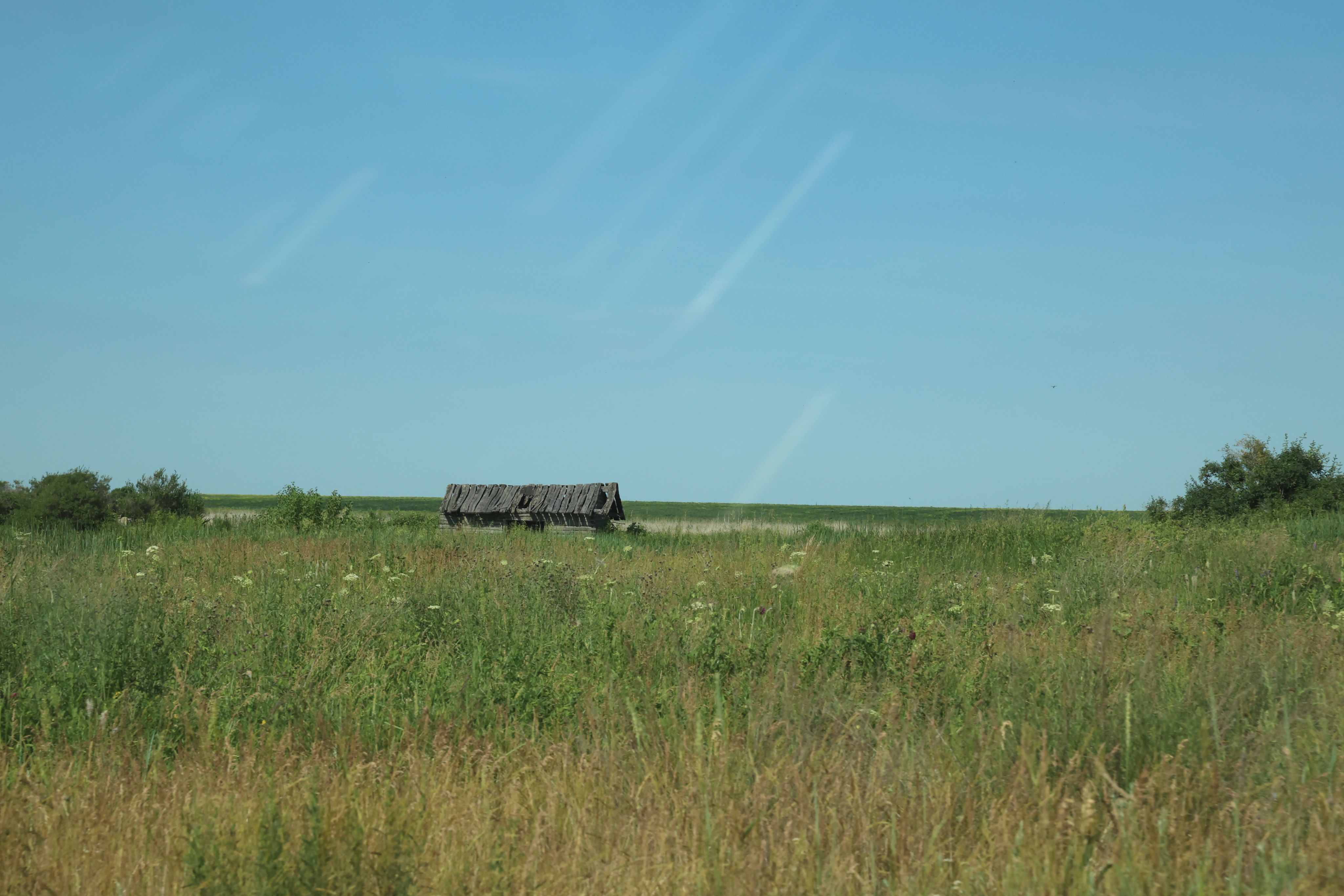
The BES Solution Fund and Its Role in Kazakhstan
In October 2019, Kazakhstan hosted the BES-Net Regional Trialogue for Central Asia in Almaty with the aim of bringing together science, policy and practice communities from multiple countries in the region to address urgent biodiversity issues. Kazakhstan played a key role in discussions on the priority actions at the national and regional levels, informed by key findings of the IPBES thematic assessments on Pollination and Land Degradation and Restoration.
As a result of its active engagement in the Regional Trialogue and its commitment to the IPBES assessment themes, Kazakhstan became a recipient of the BES Solution Fund, a catalytic seed fund that allows selected countries to implement tangible and scalable biodiversity solutions. This support has been instrumental in providing local initiatives such as pollinator conservation programmes with the resources needed to turn scientific insights into practical solutions. The Ministry of Ecology, Geology and Natural Resources, in partnership with the United Nations Development Programme, local communities, non-governmental organizations and scientific institutions, have joined efforts to boost pollinator populations, reverse desertification and promote sustainable land management.
The BES Solution Fund has been instrumental in providing local initiatives such as pollinator conservation programmes with the resources needed to turn scientific insights into practical solutions.
The BES Solution Fund and Its Role in Kazakhstan
In October 2019, Kazakhstan hosted the BES-Net Regional Trialogue for Central Asia in Almaty with the aim of bringing together science, policy and practice communities from multiple countries in the region to address urgent biodiversity issues. Kazakhstan played a key role in discussions on the priority actions at the national and regional levels, informed by key findings of the IPBES thematic assessments on Pollination and Land Degradation and Restoration.
As a result of its active engagement in the Regional Trialogue and its commitment to the IPBES assessment themes, Kazakhstan became a recipient of the BES Solution Fund, a catalytic seed fund that allows selected countries to implement tangible and scalable biodiversity solutions. This support has been instrumental in providing local initiatives such as pollinator conservation programmes with the resources needed to turn scientific insights into practical solutions. The Ministry of Ecology, Geology and Natural Resources, in partnership with the United Nations Development Programme, local communities, non-governmental organizations and scientific institutions, have joined efforts to boost pollinator populations, reverse desertification and promote sustainable land management.
The BES Solution Fund has been instrumental in providing local initiatives such as pollinator conservation programmes with the resources needed to turn scientific insights into practical solutions.
One key way the BES Solution Fund has been promoting sustainable practices in Kazakhstan is by facilitating dialogue between previously disconnected local actors, such as field growers and beekeepers, who often worked in isolation and sometimes even in opposition.
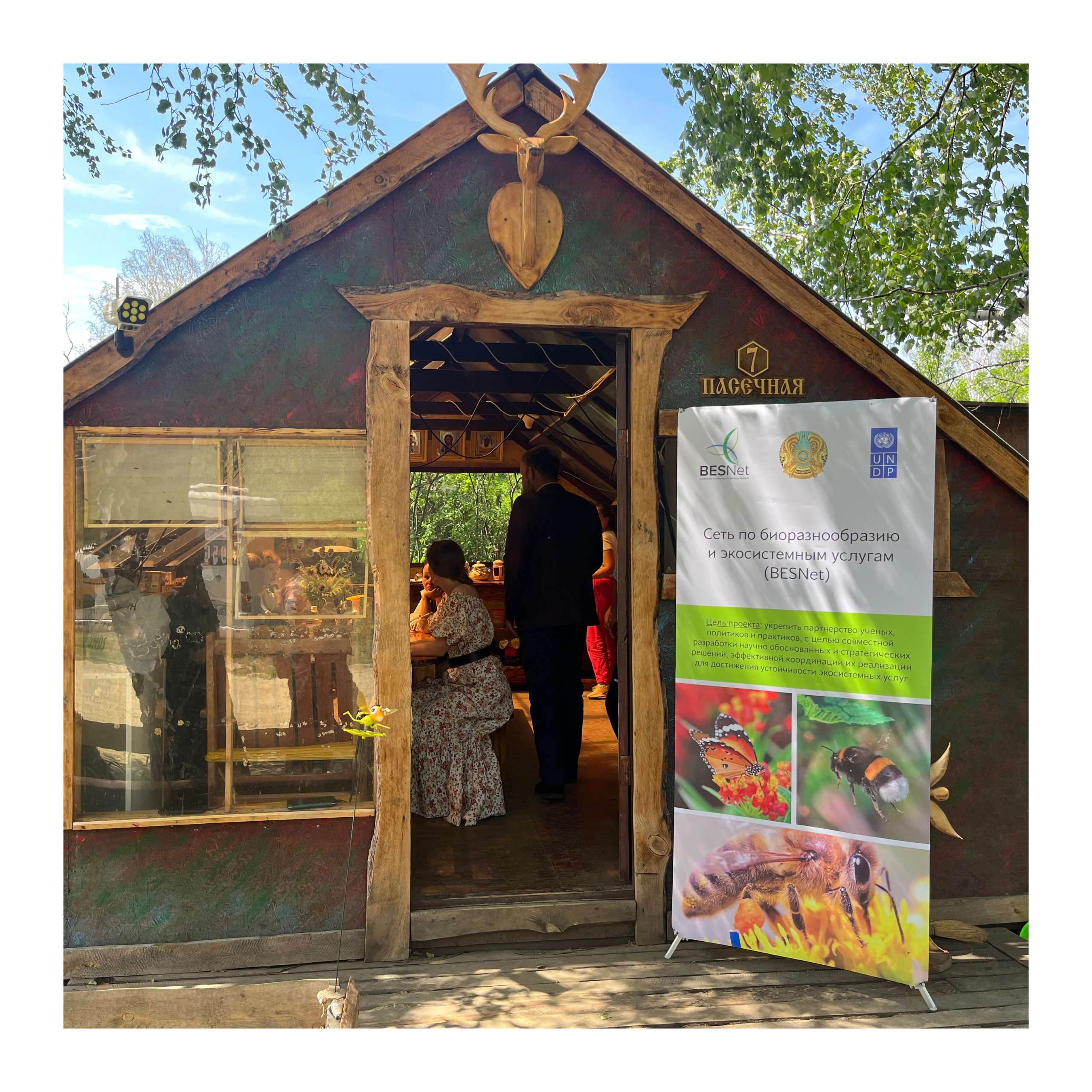
Disconnection between these groups had long been an obstacle to coordinated efforts, with farmers needing more alignment with beekeeping activities and beekeepers facing losses due to pesticide use. Through seminars, focus groups and the creation of regional platforms, the BES Solution Fund helped bring these groups together, encouraging dialogue and joint action to protect pollinators as a key ecosystem service provider, which contributes to more sustainable agricultural practices.
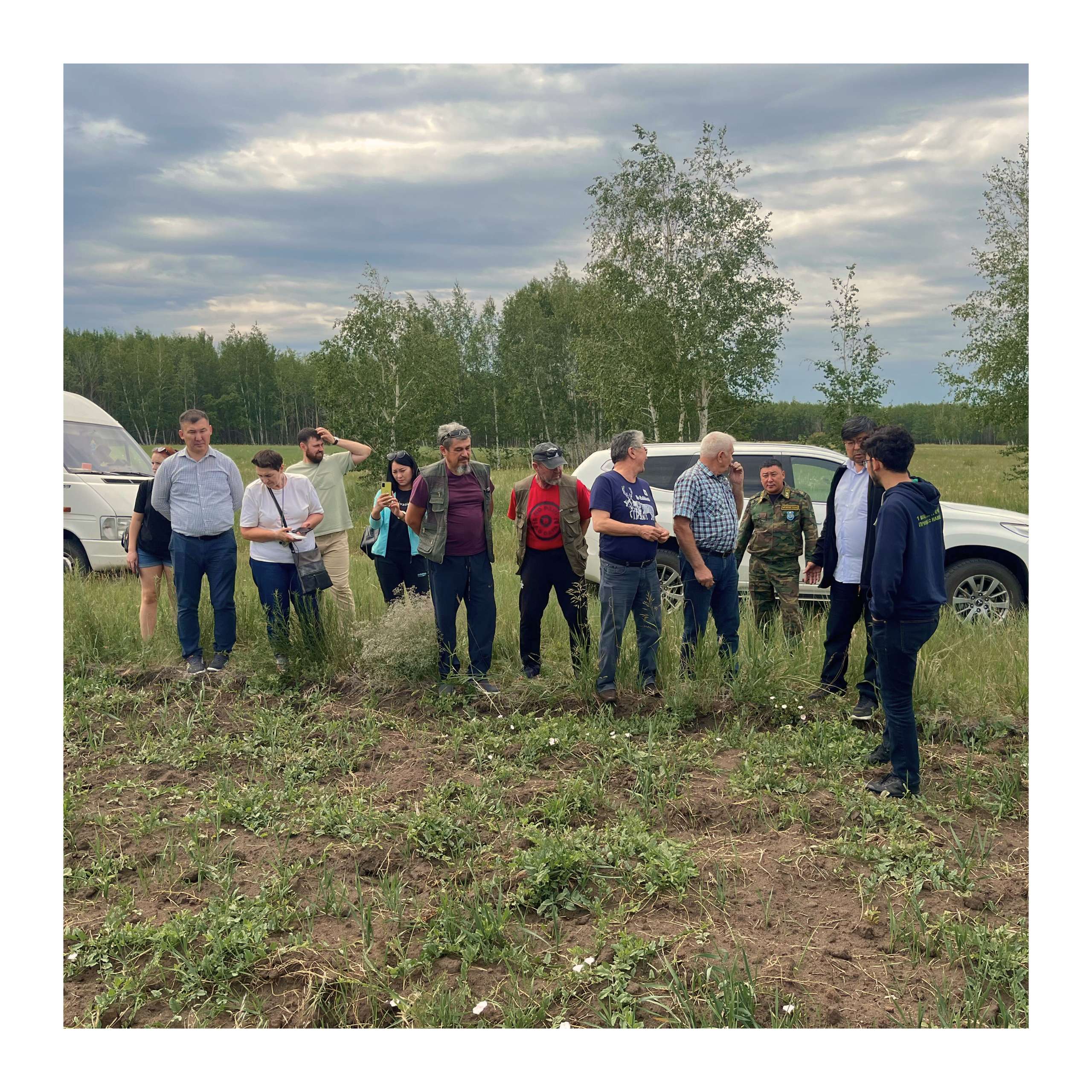
Viktor Aslanov, from the Kazakhstan Union of Field Growers, described the situation:
“In Kazakhstan, there’s a problem: field farmers don’t get along with beekeepers because they don’t like how they do certain things. We brought them together and asked them to work in a more coordinated manner. Not only did we manage to get the two sides to reconcile, but we also encouraged them to work together moving forward because we need the project to live on and benefit all parties.”
As a result of the support provided by the BES Solution Fund, a channel for communication was opened, promoting shared goals between these two groups.
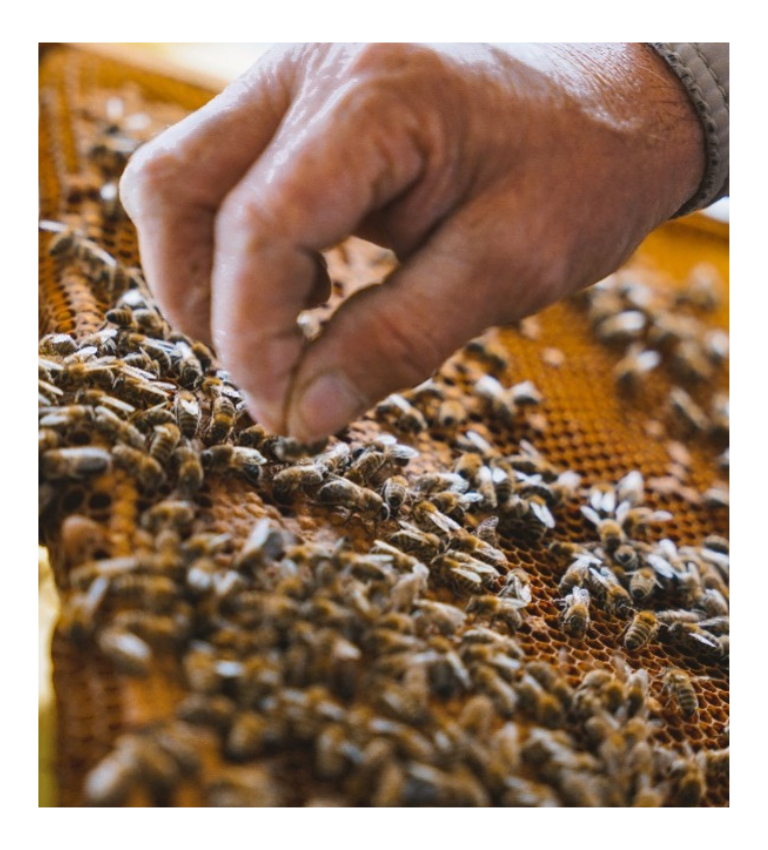
Elena Kurganova, from the Bal-Ara National Union of Beekeepers, emphasized the importance of common understanding and cooperation between farmers and beekeepers:
“The main problem is the excessive use of pesticides. Farmers have to understand that if beekeepers pollinate their fields, their yield will increase.”
This new understanding is helping both groups adopt more pollinator-friendly practices to the benefit of Kazakhstan’s biodiversity and agricultural productivity.


One key way the BES Solution Fund has been promoting sustainable practices in Kazakhstan is by facilitating dialogue between previously disconnected local actors, such as field growers and beekeepers, who often worked in isolation and sometimes even in opposition. Disconnection between these groups had long been an obstacle to coordinated efforts, with farmers needing more alignment with beekeeping activities and beekeepers facing losses due to pesticide use. Through seminars, focus groups and the creation of regional platforms, the BES Solution Fund helped bring these groups together, encouraging dialogue and joint action to protect pollinators as a key ecosystem service provider, which contributes to more sustainable agricultural practices.
Viktor Aslanov, from the Kazakhstan Union of Field Growers, described the situation:
“In Kazakhstan, there’s a problem: field farmers don’t get along with beekeepers because they don’t like how they do certain things. We brought them together and asked them to work in a more coordinated manner. Not only did we manage to get the two sides to reconcile, but we also encouraged them to work together moving forward because we need the project to live on and benefit all parties.”
As a result of the support provided by the BES Solution Fund, a channel for communication was opened, promoting shared goals between these two groups.
Elena Kurganova, from the Bal-Ara National Union of Beekeepers, emphasized the importance of common understanding and cooperation between farmers and beekeepers:
“The main problem is the excessive use of pesticides. Farmers have to understand that if beekeepers pollinate their fields, their yield will increase.”
This new understanding is helping both groups adopt more pollinator-friendly practices to the benefit of Kazakhstan’s biodiversity and agricultural productivity.

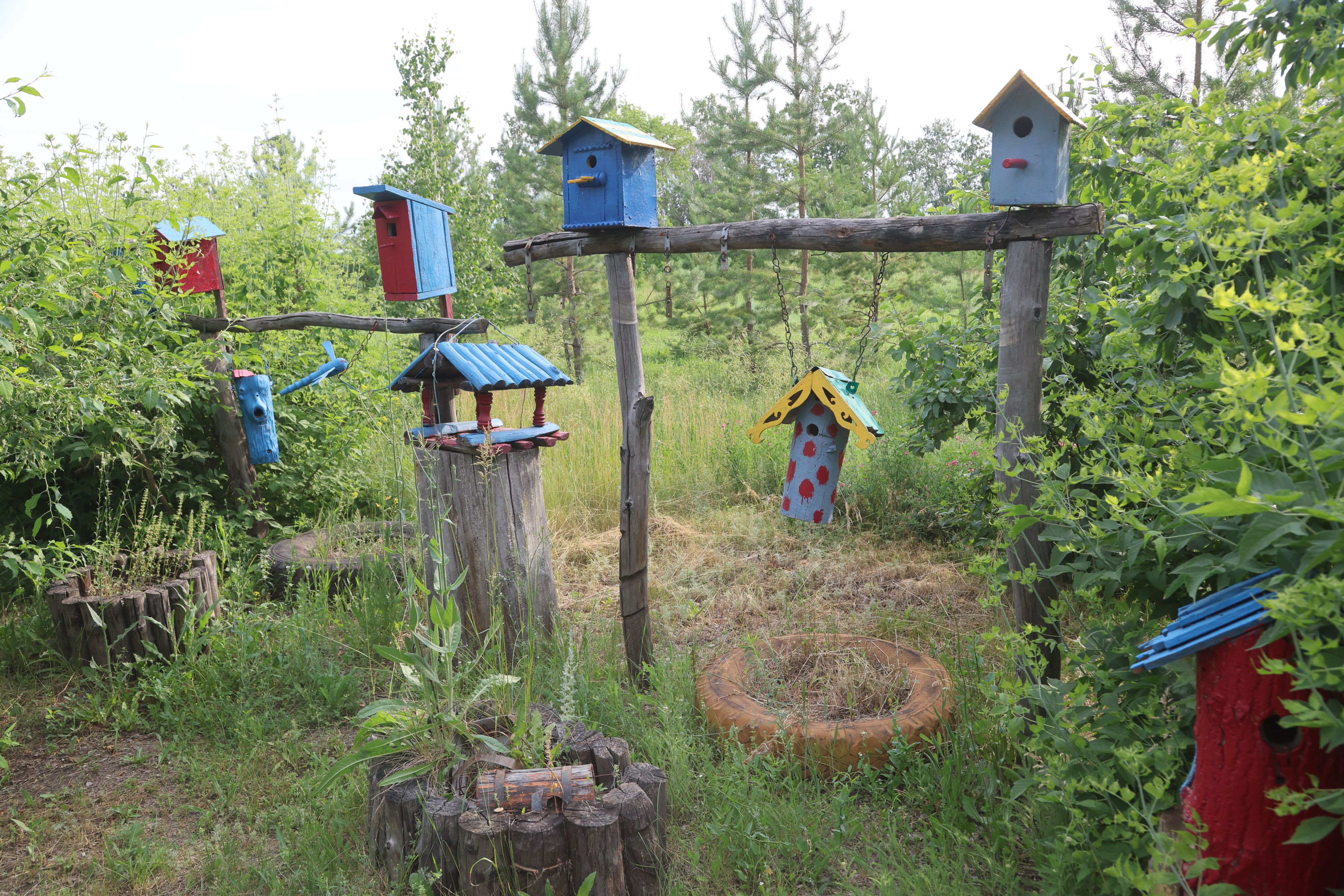
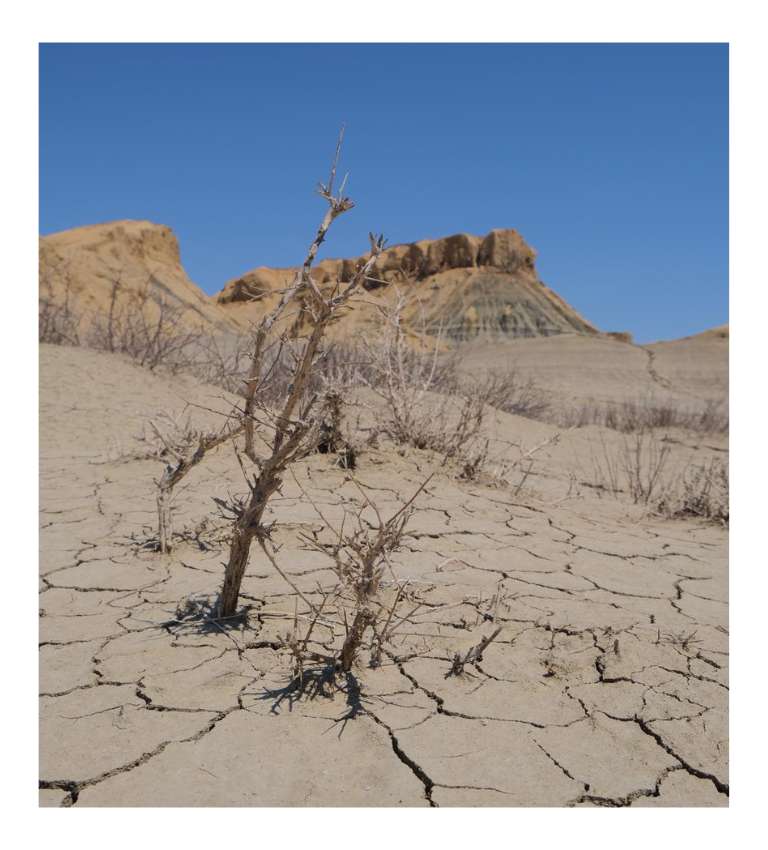
Addressing Land Degradation and Supporting Pollinators through Pilot Initiatives
One of the main objectives of the BES Solution Fund in Kazakhstan has been the restoration of degraded lands. “One of the most serious problems facing Kazakhstan today is land degradation and desertification. Between 50 and 80% of Kazakhstan's territory has been degraded or desertified to some degree, and not only does this affect food production, but it also leads to a shortage of water for use in agriculture. There’s also the problem of wind erosion on sand massifs and in soil distribution zones, which is worse than in any other country,” explains Zhansaya Temirzhan, a chief expert from the Office of Specially Protected Natural Areas in Kazakhstan’s Ministry of Ecology and Natural Resources.
The country has suffered from years of unsustainable land use practices, leading to soil erosion and reduced agricultural productivity. To combat these issues, the fund supported selected pilot projects aimed at modelling sustainable agricultural practices. Among the most successful of these supported initiatives are the demonstration plots at the Petrovskaya Apiary in the Kostanay region, where innovative techniques such as the green grass conveyor are being implemented successfully. These plots cover over 22 hectares, cultivating pollinator-friendly crops that help restore the soil and demonstrate improved agricultural yields.

Addressing Land Degradation and Supporting Pollinators through Pilot Initiatives
One of the main objectives of the BES Solution Fund in Kazakhstan has been the restoration of degraded lands. “One of the most serious problems facing Kazakhstan today is land degradation and desertification. Between 50 and 80% of Kazakhstan's territory has been degraded or desertified to some degree, and not only does this affect food production, but it also leads to a shortage of water for use in agriculture. There’s also the problem of wind erosion on sand massifs and in soil distribution zones, which is worse than in any other country,” explains Zhansaya Temirzhan, a chief expert from the Office of Specially Protected Natural Areas in Kazakhstan’s Ministry of Ecology and Natural Resources.

The country has suffered from years of unsustainable land use practices, leading to soil erosion and reduced agricultural productivity. To combat these issues, the fund supported selected pilot projects aimed at modelling sustainable agricultural practices. Among the most successful of these supported initiatives are the demonstration plots at the Petrovskaya Apiary in the Kostanay region, where innovative techniques such as the green grass conveyor are being implemented successfully. These plots cover over 22 hectares, cultivating pollinator-friendly crops that help restore the soil and demonstrate improved agricultural yields.
One of the most serious problems facing Kazakhstan today is land degradation and desertification. Between 50 and 80% of Kazakhstan's territory has been degraded or desertified to some degree, and not only does this affect food production, but it also leads to a shortage of water for use in agriculture.
One of the most serious problems facing Kazakhstan today is land degradation and desertification. Between 50 and 80% of Kazakhstan's territory has been degraded or desertified to some degree, and not only does this affect food production, but it also leads to a shortage of water for use in agriculture.
Sergey Petrov, a third-generation beekeeper and farmer and owner of the Petrovskaya Apiary, explains the immense benefits of these sustainable farming practices: “Sustainable farming in our case means creating something like a honey conveyor belt, so that bees have a source of honey from early spring to late autumn, and something is always blooming and growing.” By utilizing agroforestry and carefully introducing new species of plants, the demo plot initiative has proved extremely successful in restoring degraded land as well.
“We added a mixture of plants, including white clover, which is useful for the restoration of land. It’s visible how it’s helped reverse land degradation. Sweet clover is the only plant that grows in salt marshes. It takes salt from the soil and enriches it, and the soil returns to crop rotation a few years later,” Sergey adds enthusiastically.
Apart from the environmental benefits, Sergey also highlights the positive impact this project has had on the local community. A popular educational initiative, which started a plant nursery at a local school, has proven very successful and is now expanding to other schools and regions. “In terms of awareness building, we’re running a joint project with Boskol School, which has extended to Toguzak School and Korabalyk School. The educational part of the project proved extremely successful, and it started to spread across the country. And it all started with us, with our project at the plant nursery of Boskol School,” Sergey explains.
Image captions
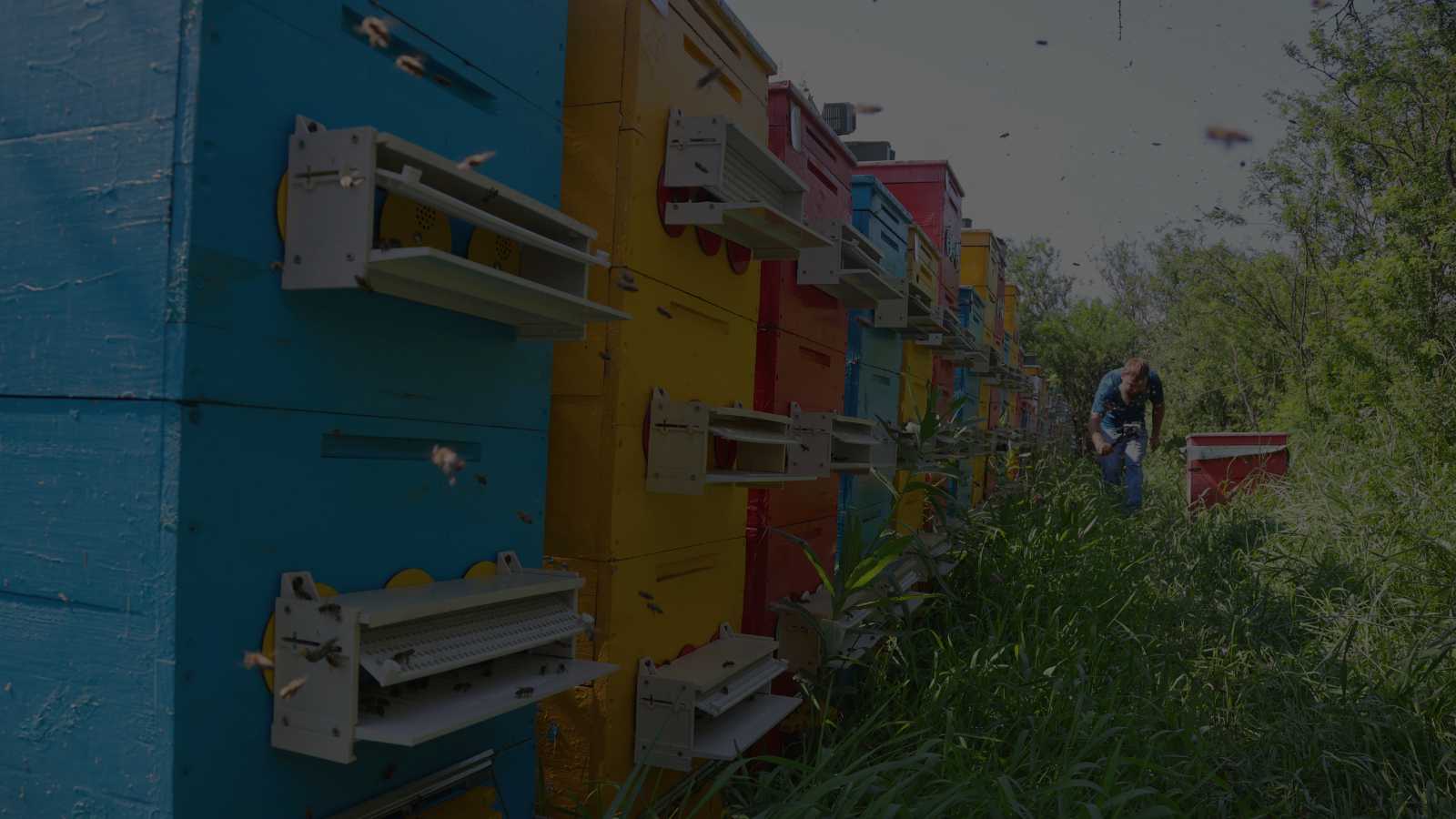
Sergey Petrov, a third-generation beekeeper and farmer and owner of the Petrovskaya Apiary, explains the immense benefits of these sustainable farming practices: “Sustainable farming in our case means creating something like a honey conveyor belt, so that bees have a source of honey from early spring to late autumn, and something is always blooming and growing.” By utilizing agroforestry and carefully introducing new species of plants, the demo plot initiative has proved extremely successful in restoring degraded land as well.
“We added a mixture of plants, including white clover, which is useful for the restoration of land. It’s visible how it’s helped reverse land degradation. Sweet clover is the only plant that grows in salt marshes. It takes salt from the soil and enriches it, and the soil returns to crop rotation a few years later,” Sergey adds enthusiastically.
Apart from the environmental benefits, Sergey also highlights the positive impact this project has had on the local community. A popular educational initiative, which started a plant nursery at a local school, has proven very successful and is now expanding to other schools and regions. “In terms of awareness building, we’re running a joint project with Boskol School, which has extended to Toguzak School and Korabalyk School. The educational part of the project proved extremely successful, and it started to spread across the country. And it all started with us, with our project at the plant nursery of Boskol School,” Sergey explains.
Image captions
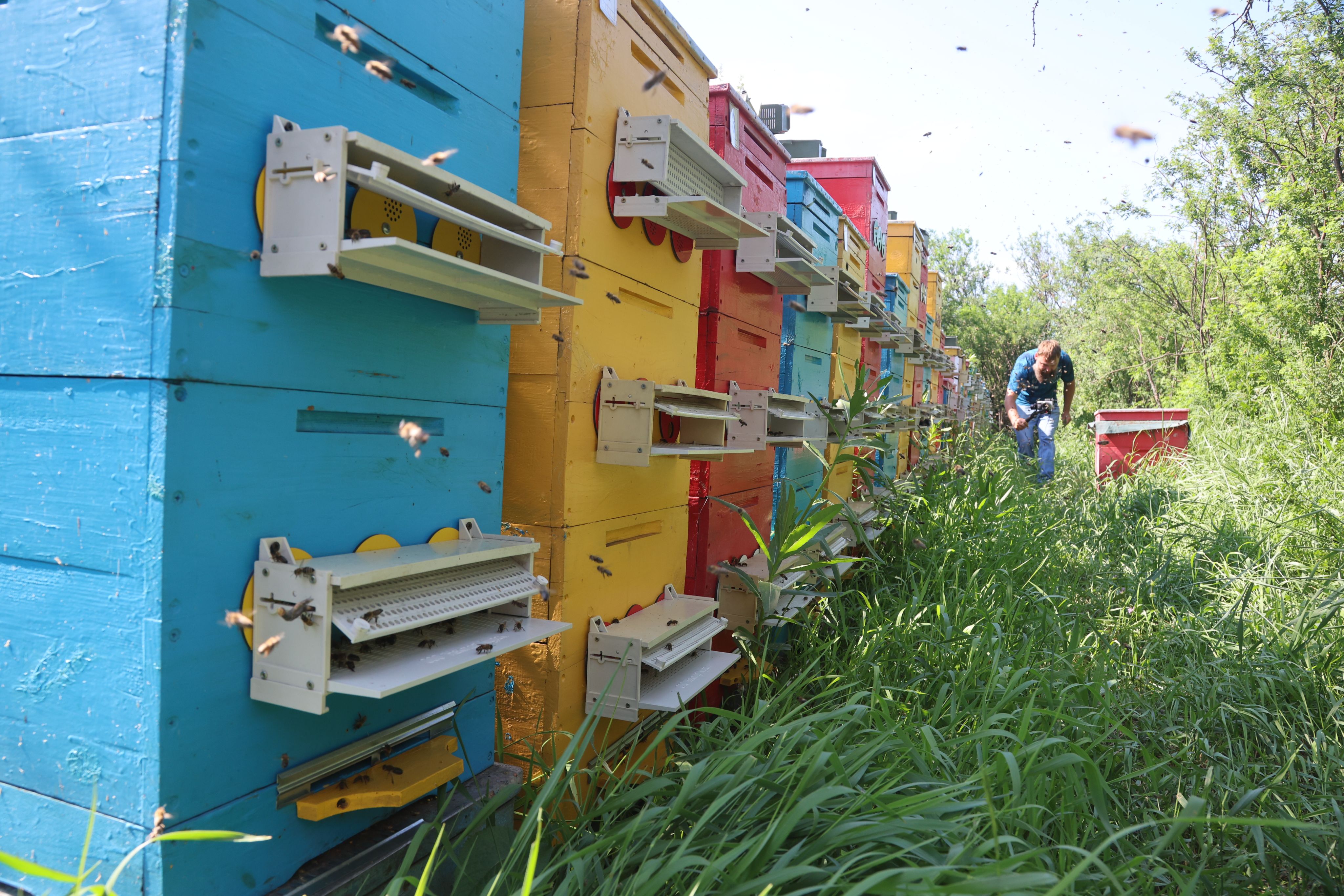
Pollination is crucial to Kazakhstan’s ecosystem restoration efforts, particularly in regions where biodiversity has been compromised by desertification.
As part of the BES Solution Fund, an insect multiplication lab was equipped with vital supplies to breed insects beneficial in pest control, such as Trichogramma and Bracon hebetor. These insects play a key role in biological pest control, reducing the need for chemical pesticides and supporting healthier and more robust pollinator populations.
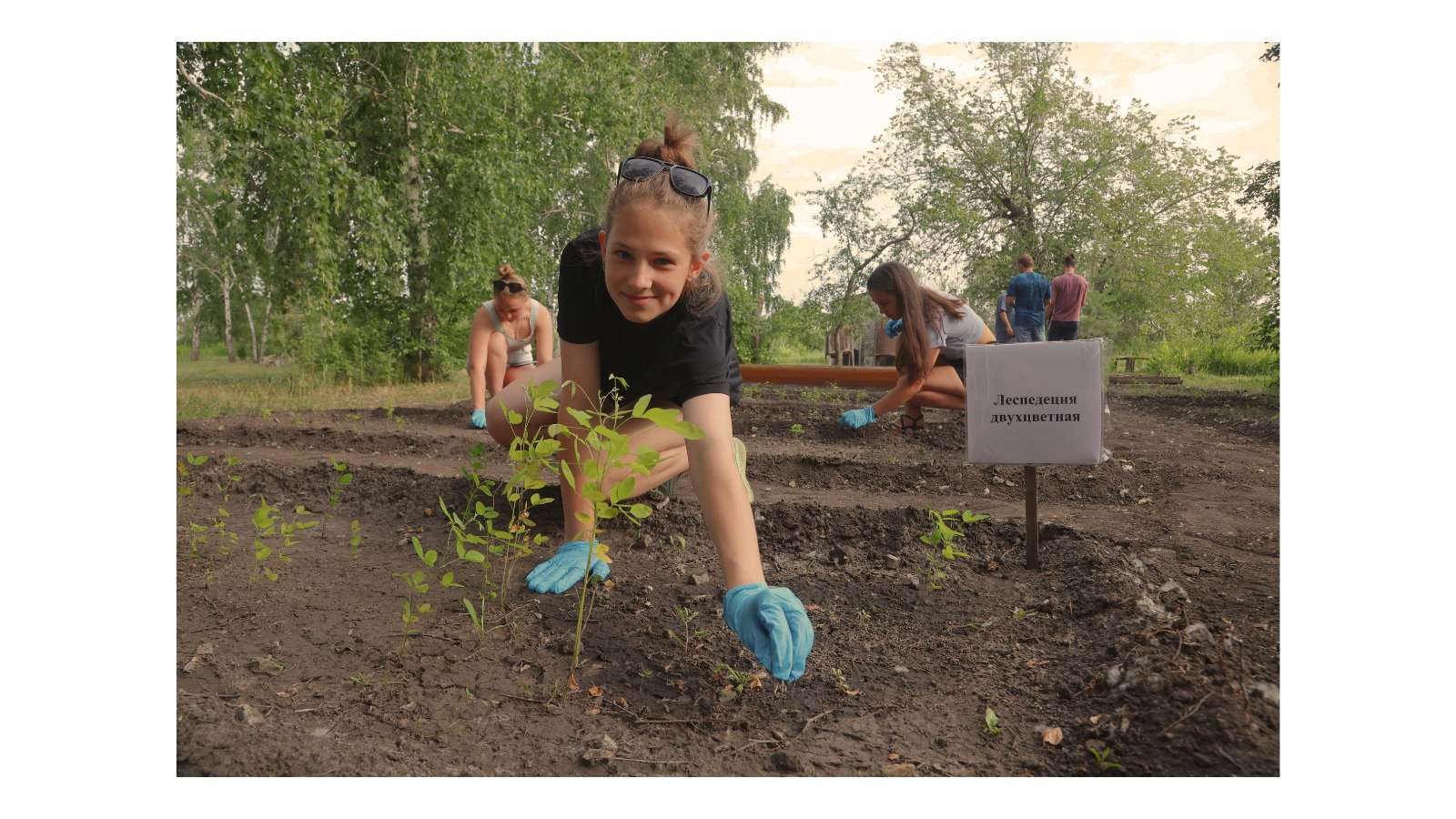
The lab’s efforts have already shown promising results. By breeding and releasing these beneficial insects into selected agricultural areas, farmers have been able to significantly reduce pesticide use while increasing pollinator activity. “By using biological agents and entomophages, we reduce the pesticide load, and that helps increase the number of pollinators,” said Balzhan Naimanova, a scientist working for the Kazakh Research Institute of Plant Protection and Quarantine.
Pollination is crucial to Kazakhstan’s ecosystem restoration efforts, particularly in regions where biodiversity has been compromised by desertification.
As part of the BES Solution Fund, an insect multiplication lab was equipped with vital supplies to breed insects beneficial in pest control, such as Trichogramma and Bracon hebetor. These insects play a key role in biological pest control, reducing the need for chemical pesticides and supporting healthier and more robust pollinator populations.
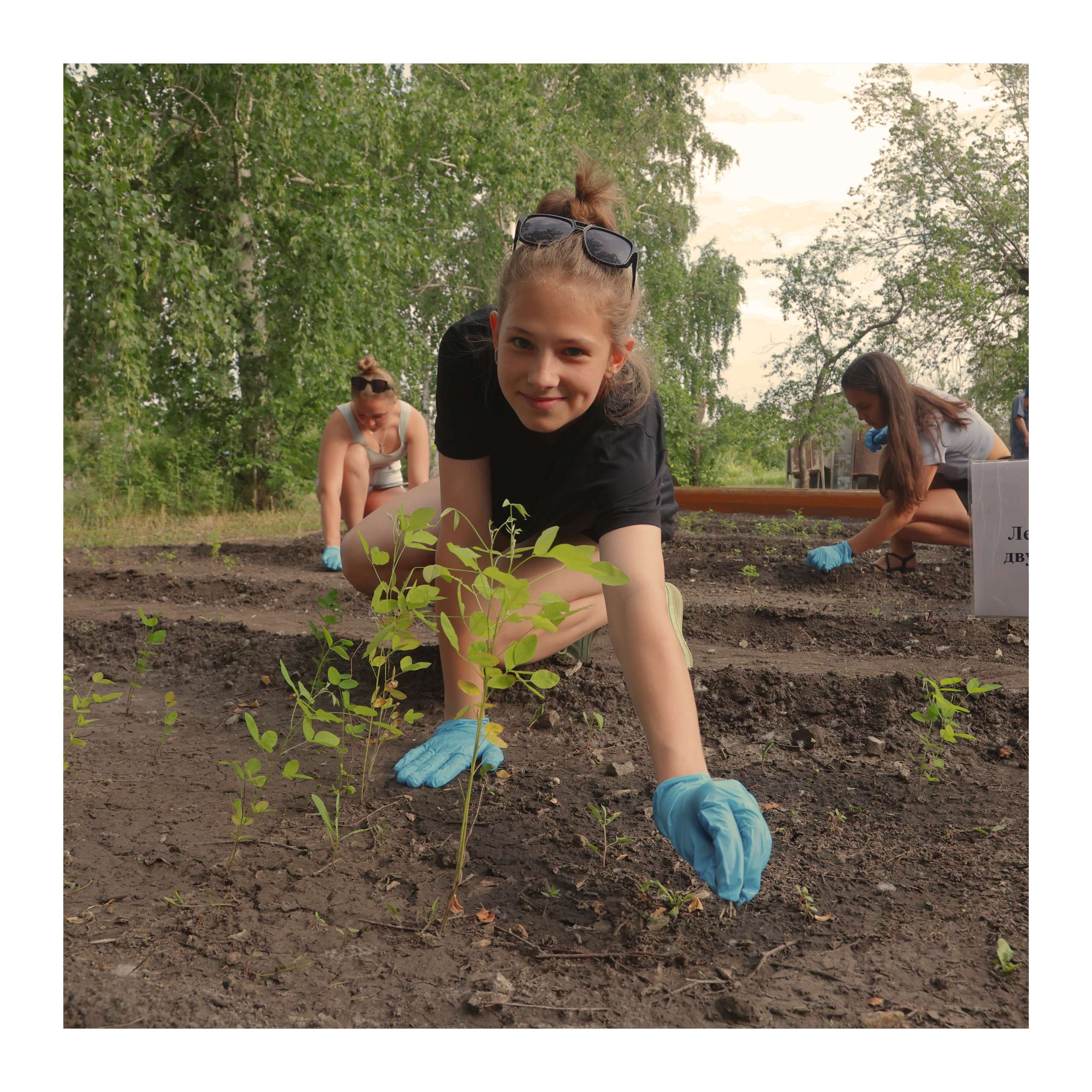
The lab’s efforts have already shown promising results. By breeding and releasing these beneficial insects into selected agricultural areas, farmers have been able to significantly reduce pesticide use while increasing pollinator activity. “By using biological agents and entomophages, we reduce the pesticide load, and that helps increase the number of pollinators,” said Balzhan Naimanova, a scientist working for the Kazakh Research Institute of Plant Protection and Quarantine.
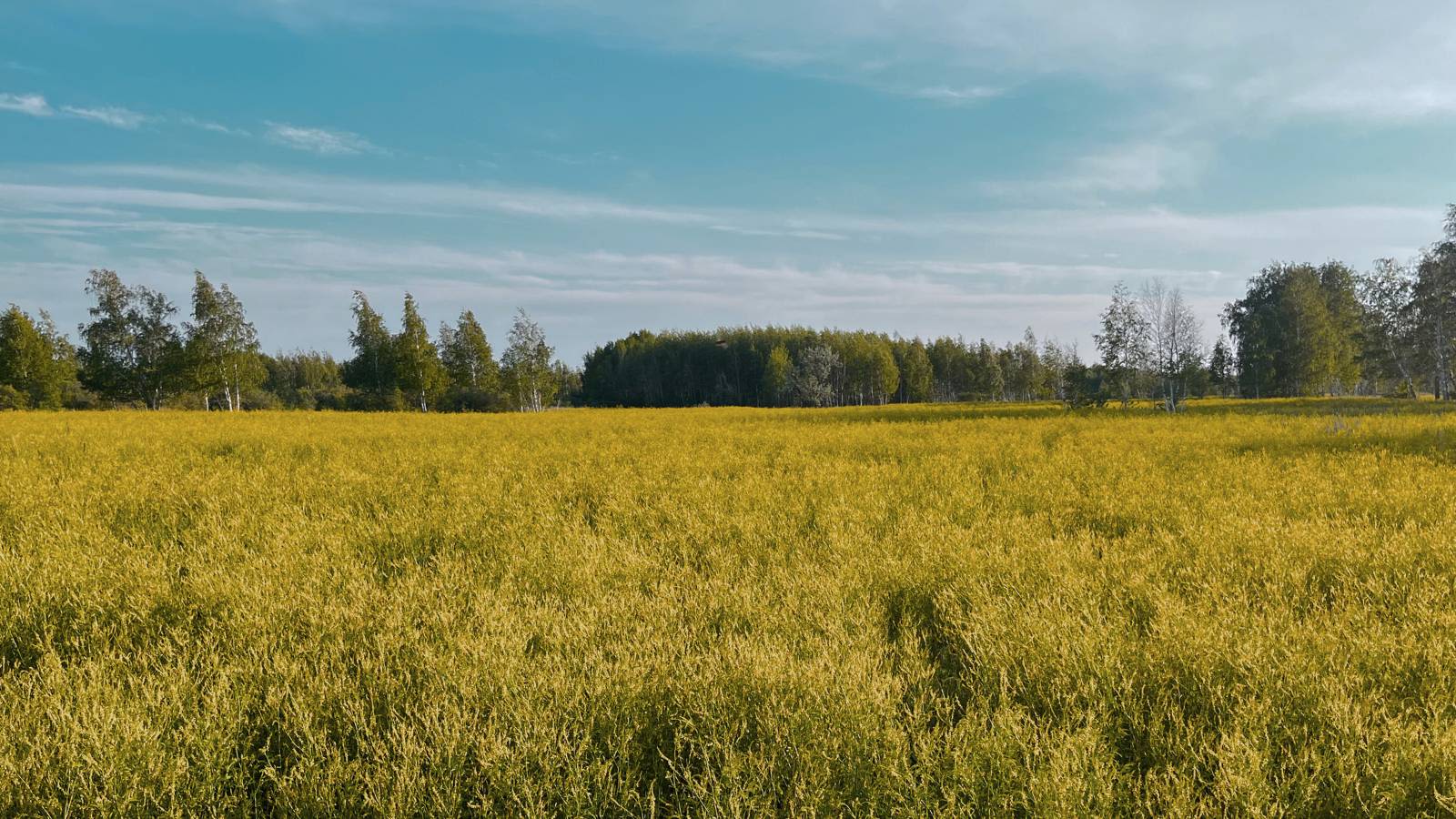
Kazakhstan Joins IPBES – A Milestone for a Sustainable Future
A highly significant moment for Kazakhstan in 2024 was becoming the 146th member of IPBES, marking a major milestone in the country’s commitment to evidence-based environmental policymaking. “We’ve only been a member since April, as before we had an observer status, but already, we are actively using the most advanced knowledge from IPBES to inform our national strategy,” says Zhansaya Temirzhan.
The country's formal IPBES membership is a game-changer, re-asserting its commitment to tackling pressing biodiversity issues and ensuring that their efforts align with international best practices. As Zhansaya points out, “IPBES will help strengthen our knowledge base for making more effective policy decisions based on scientific solutions.”
IPBES will help strengthen our knowledge base for making more effective policy decisions based on scientific solutions.
Looking ahead, Kazakhstan’s journey towards ecosystem restoration is just beginning. The BES Solution Fund, alongside the start of the country’s recent IPBES membership, ensures that Kazakhstan is on a promising path toward a sustainable, nature-positive future – one where both people and ecosystems thrive together.
Kazakhstan Joins IPBES – A Milestone for a Sustainable Future
A highly significant moment for Kazakhstan in 2024 was becoming the 146th member of IPBES, marking a major milestone in the country’s commitment to evidence-based environmental policymaking. “We’ve only been a member since April, as before we had an observer status, but already, we are actively using the most advanced knowledge from IPBES to inform our national strategy,” says Zhansaya Temirzhan.
The country's formal IPBES membership is a game-changer, re-asserting its commitment to tackling pressing biodiversity issues and ensuring that their efforts align with international best practices. As Zhansaya points out, “IPBES will help strengthen our knowledge base for making more effective policy decisions based on scientific solutions.”
Looking ahead, Kazakhstan’s journey towards ecosystem restoration is just beginning. The BES Solution Fund, alongside the start of the country’s recent IPBES membership, ensures that Kazakhstan is on a promising path toward a sustainable, nature-positive future – one where both people and ecosystems thrive together.
IPBES will help strengthen our knowledge base for making more effective policy decisions based on scientific solutions.


